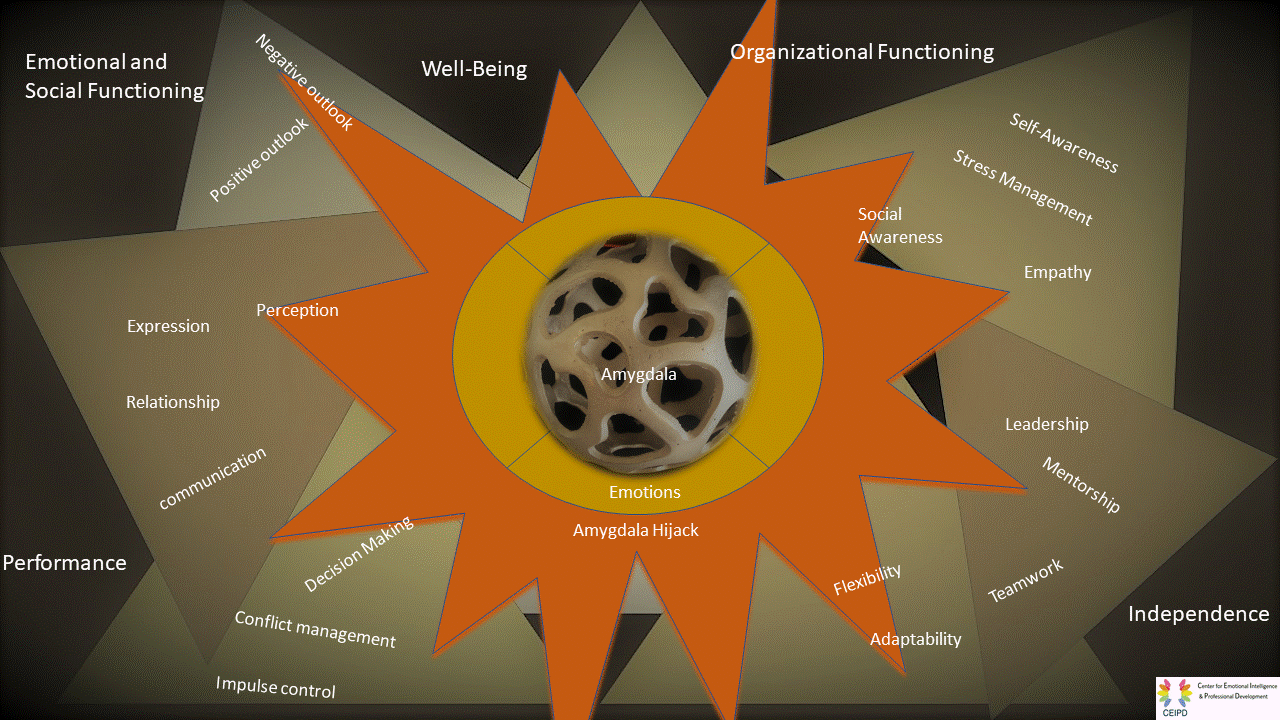For some of us, going to work is like sitting on a chair made of bamboo-spikes: An uncomfortable, unpleasant feeling that, as time passes, seems to be digging into your flesh, damaging your nerves, well-being, and professional sanity.
While those are painful situations, we need to learn how to choose wisely and choose intelligently. Instead of routinely concentrating on the gazillion negative feelings surrounding hostility in the workplace, choose to be emotionally intelligent, using the negative airborne information to start designing a plan out of your professional misery.
A laser-focus mind on negative feelings could be related to what Dr. Daniel Goleman called an amygdala hijack. The amygdala is the section of the brain where emotions are processes. An amygdala hijack is an instinctive, unthought, and sometimes overwhelming response to unwanted emotions. Mostly, as a result of an unexpected event or the accumulations of little ones that could trigger an unexpected response. The amygdala controls our emotions, and instinctively triggers self-defense mechanisms similar to a need to “fight or flight” depending on the intensity of the emotion.
Those negative emotions, like the positive ones, are likely to trigger intense and uncontrollable cognitive behavioral responses as well. Those responses could be manifested as uncontrollable sweat, feeling of coldness on the tip of your finger, dry mouth, a sinking feeling on your stomach, light-headed, rage, euphoria, inability properly focus our senses, and more. Those usually create a chain of emotional events that could link every single loop in our EI network. Like the one on the picture above.
Negative emotions in the workplace are like airborne diseases with a pathologically contagious effect that can cause chronic stress disorders, further affecting the individual physical, mental, and emotional abilities of an individual, interfering with all of our personal and professional goals, as well as our objectives and performance.
Learn your emotional intelligence strength and weakness. EI is not about making you feel vulnerable. EI is about making you a stronger performer in the workplace. Learning the no-so-secret Morse-codes of emotional flares in the workplace can prevent you many aggravations and disappointments. Learning those can also teach you many strategies when working with cross-functional and challenging management.
Use the negative emotional data in your environment as the foundation for future changes. For example, negative emotions enhance thinking, provide a clearer focus, allows more attention to details by closer examinations, and motivates a more efficient search for error. Use it for self-constructive feedbacks. Many times, we continuously blame others for decisions we make. Taking responsibility for your actions is the first step to change our current path. Taking full responsibility for our decisions is the first step toward the understanding of the complexities of changes, shifting the attention from them to you.
Learn the ‘what’s’ and ‘why’s’ you feel the way you feel. Unless a person has a genetic or medical condition, there is no such thing as an emotionless person. While an emotional hijack is not an option, holding back on your emotions is neither. The key here is prioritizing based on the level of importance and significance. What is currently affecting you in the workplace? What part of it is making you feel the way you feel? Why is that issue making you feel the way you feel? And Can you do something about it? The answer is always yes. You can always do something about your current situation. The secret may be to stop complaining about the situation and start taking baby-steps to change it.
Finally, perception. Throughout the centuries, perception has been one of the most relevant and important behavioral influencers on issues related to businesses transactions, organizational changes, communication, collaboration, leadership approaches, and professional performance in the workplace. Perception has also a strong influence on our EI. Perception is cognitively linked to awareness, performance, development, teamwork, flexibility, stress-tolerance, decision-making, problem-solving, empathy, social responsibilities, and many other EI abilities.
In fact, studies have demonstrated that the challenges of perception conflict with issues related with one’s professional presence, misunderstanding, lack of awareness, and rejection to openness. We are all different human being. As such, it is important to realize that we perceive, analyze, understand, and accept things differently. Remember that our perception is mainly influenced by our culture, education, and experiences. What it might seem negative for you does not necessarily mean that it is a negative action for the other person. The best way to find out what the person meant is by asking in a professional, respectfully way.


